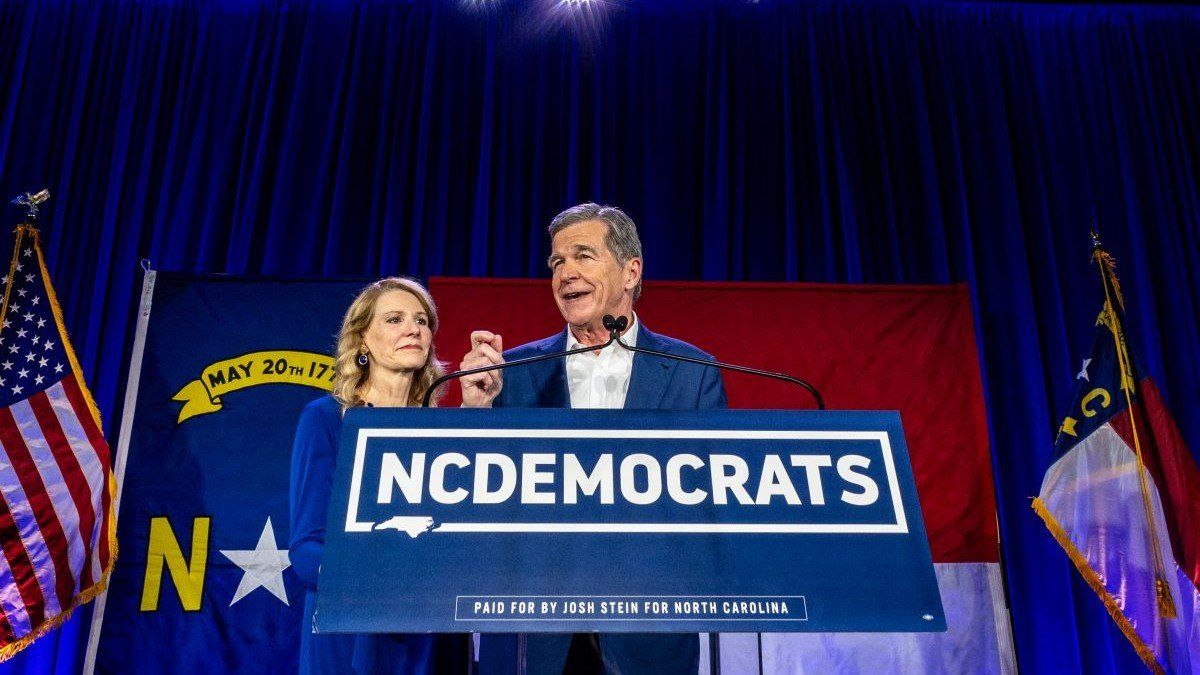There’s not much Democrats and Republicans agree on these days, but one area where they seem to share a view is this: the race for North Carolina’s open US Senate seat could be the most important election in the 2026 midterms.
How do we know? Follow the money. Each party is planning to spend gargantuan sums of money to win it, potentially breaking records.
“It’s going to be astronomical,” Matt Ballance, a former local Democratic Party chair in the southern state, told GZERO. “I think we’re going to see numbers that are going to blow past records out of the water.”
“It’ll be the most expensive Senate race in US election history,” says Michele Woodhouse, a former local Republican Party chair in the Tar Heel state.
Why the focus on North Carolina? It’s one of the few “swing states” – meaning ones that are still closely decided – that will have a Senate election next year. Arizona, Nevada, Pennsylvania and Wisconsin – four of the seven battleground states from 2024 – don’t have an open seat this cycle. Michigan, one of the other two, hasn’t had a Republican senator since 2000. And with Georgia Democrat Jon Ossoff running as an incumbent, North Carolina becomes the biggest prize.
While Democrats are unlikely to flip the Senate next year – they’d need to gain four seats in total to do so – winning the Tar Heel state would put them in a much stronger position to win back the chamber outright in 2028.
The North Carolina race was blown open a month ago when current Republican Sen. Thom Tillisannounced he would vote against President Donald Trump’s Big Beautiful Bill, over concerns it would slash healthcare funding. After Trump threatened to back a challenger to Tillis in the Republican primary, the two-term senator announced he’d retire next year rather than face the president’s wrath in a re-election fight. (He still voted against the bill.)
So who will replace him in the race? Trump is pushing for Republican National Committee Chairman Michael Whatley, a former North Carolina GOP leader who is set to announce a run imminently. As a close Trump ally, he will likely prioritize strong immigration enforcement, gun rights, and law and order. However, he has never held public office, so his policy preferences aren’t fully clear.
Woodhouse, who knows Whatley from their time working in the North Carolina GOP, thinks Trump’s endorsement will carry him through the primary, but she says he may face challenges at the grassroots level where he isn’t as well known to voters – especially among Trump supporters who don’t necessarily identify as Republican.
“I think he will be the nominee, but I don’t think it will be without a fight.”
What about the Democrats? There was only ever going to be one choice: former Gov. Roy Cooper, the 68-year-old centrist from rural Nash County.
When it comes to North Carolina politics, the man is a “powerhouse,” says Ballance. He has won six consecutive statewide races – including four as an attorney general – and took the governorship in 2016, despite Trump winning the state in that year’s presidential race. Cooper declared on Monday that he would run for the seat, prompting former US Rep. Wiley Nickel to suspend his nascent campaign the next day.
Cooper will put the economy at the center of his appeal. “I know that today, for too many Americans, the middle class feels like a distant dream,” he said in his announcement video. The video also features Cooper alongside members of law enforcement, and makes no reference to abortion, even though the former governor tried desperately to protect access to the procedure in his state.
Who’s the favorite? Despite its battleground status, North Carolina is something of a white whale for the Democrats, who haven't won a Senate seat (or a presidential election) there since 2008. But Cooper’s candidacy changes the calculus – a GOP-aligned polling firm found him leading Whatley by three points.
“Roy Cooper is the most formidable opponent Democrats could put up,” says Woodhouse. “Michael Whatley has a long road and a short time. He doesn’t have high name recognition. … It will be a very, very hard seat for Republicans to hold onto.”
If there is a way to target Cooper, per Woodhouse, it’ll be over his response to the COVID-19 pandemic, when he imposed some lockdowns, and the “failed” recoveries from a pair of hurricanes that struck the state during the course of his eight-year governorship.
But Ballance isn’t worried.
“He has a proven record of being able to get over the finish line,” he said, before describing Whatley as a “just a mouthpiece” who has “done nothing in terms of policy.”
Cooper plants a flag. The former governor doesn’t just put the Senate majority in sight; he also lends the party some leadership, something it desperately lacks in the wake of its shambolic 2024 campaign.
While he is on the older end of the spectrum in a party that seems to want to move in a younger direction, he has something most of his contemporaries don’t have in purple or southern states: a winning election record – he’s never lost a race.
With former Vice President Kamala Harris deciding to sit out the midterms, and the North Carolina Senate race becoming the focal point of next year’s elections, Cooper could become one of the principal faces of the party in 2026, per Woodhouse.
It could be just what the doctor ordered for Democrats.
“Democrats are rudderless right now,” says Woodhouse, the Republican. “Roy Cooper in this race could be the rally call that they all coalesce behind.”
